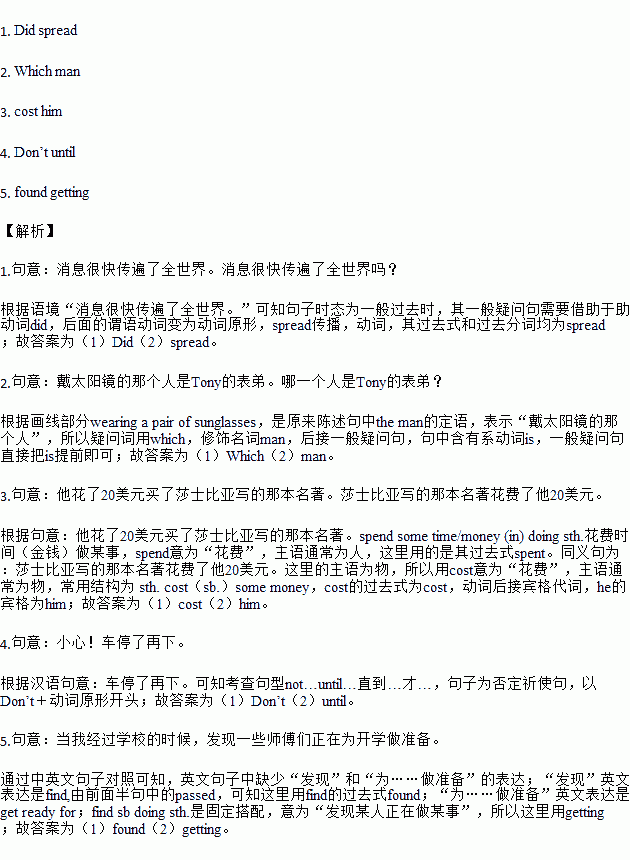题目内容
根据所给提示,完成句子。每空一词,含缩略词
1.The news spread quickly throughout the world. (改为一般疑问句)
________ the news ________ quickly throughout the world?
2.The man wearing a pair of sunglasses is Tony’s cousin. (对划线部分提问)
________ ________ is Tony’s cousin?
3.He spent 20 dollars buying the famous book written by Shakespeare.(同义句转换)
This famous book written by Shakespeare ________ ________20 dollars.
4.小心!车停了再下。(完成译句)
Be careful! ________ get off the bus ________ it stops.
5.当我经过学校的时候,发现一些师傅们正在为开学做准备。(完成译句)
When I passed by our school, I ________ some workers ________ ready for our new term.
练习册系列答案
相关题目

